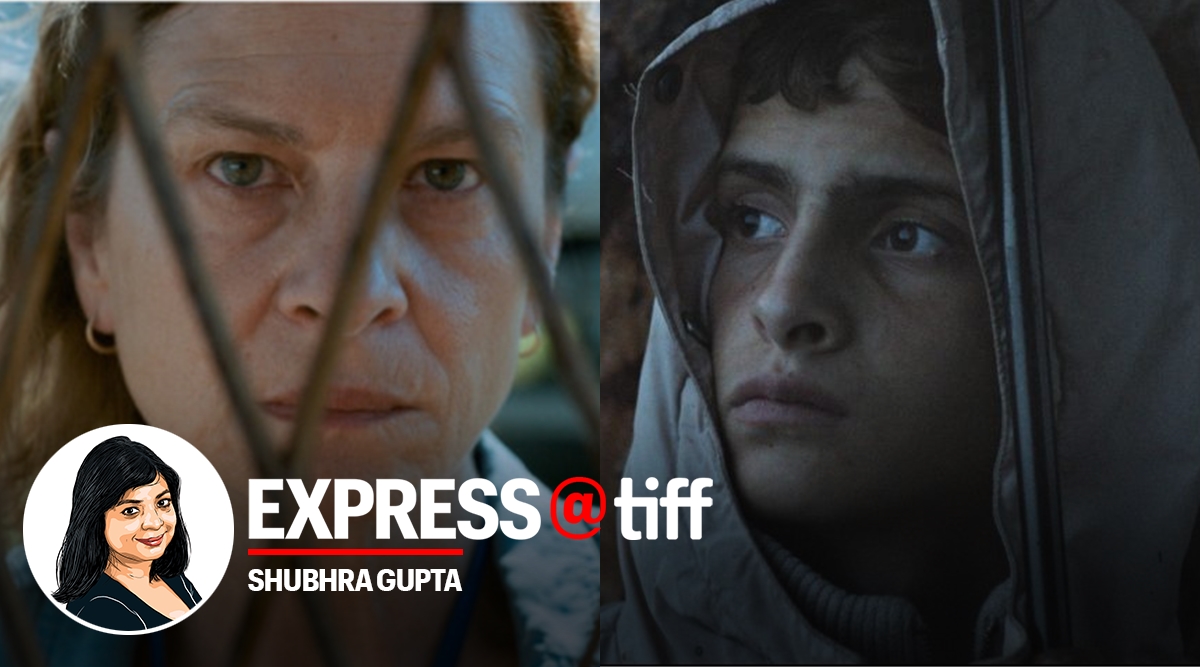
The Indian Express
Express@TIFF: From the harrowing Quo Vadis, Aida to the heartbreaking Notturno
Quo Vadis, Aida director Jasmila Zbanic draws a heartbreaking portrait of the horrors and futility of war. No one wins.
by Shubhra GuptaBased on true events, Quo Vadis, Aida is a harrowing tale of human cruelty and survival. We know that the film is proceeding inexorably towards the massacre in which over 8000 civilians in Srebrenica were killed by the Serbian army, because that’s what happened in July 1995. We also keep hoping for a miracle, and the finely-judged tension between that hope and looming despair is what makes this film so compelling.
Looking for humanity in a war drama is the only way we can bear the irreparable damage wrecked by one set of humans on another. And this we find in ample measure in Aida (Jasna Duricic, brilliant), a UN translator and Srebrenica resident, who takes shelter at a Dutch-run base along with her family and many other townspeople. Aida has the privilege of a UN badge, but her family — husband and two grown sons — doesn’t. Neither do the people who are corralled in the large, barn-like structure, or those who are stranded outside the base, clamouring to get in.
Aida is our entry into this complex, dangerous web: the increasingly helplessness of the UN officials to protect the civilians under their care is matched by the relentlessness of the charge led by Serbian general Ratko Mladic (Boris Ikakovic), who was tried for war crimes and convicted. With sinking hearts, we see the people, ominously divided by gender, led out into buses, even as Aida is desperately trying to save her family. Those buses are driven into town, and the film’s unflinching re-creation of the massacre leaves us numb and empty.
https://images.indianexpress.com/2020/08/1x1.png
How do neighbours and friends you’ve grown up with become your enemies? Aida, a former school-teacher is recognised by the young soldiers on the other side, but there is no mercy to be expected: ideological, religious hatred can only divide. Director Jasmila Zbanic draws a heartbreaking portrait of the horrors and futility of war. No one wins.
Notturno, from Gianfranco Rosi, the director of the 2016 Berlinale winner (Fire At Sea) is also a war film, minus the bullets. The deep rifts caused by the endless wars in the Middle East have been headline staples for decades: shot over two years, the film tracks the lives of ordinary people along the borders of Iraq, Lebanon, Syria and Kurdistan. How do you survive, when all around you there is death and destruction?
A group of women, grieving over their losses, run their hands on the walls of a building where the executions took place. An art therapist chats with a group of children who were witness to their families being tortured and killed. The ISIS chopped the hands off the men, and told us to eat them up, says a boy whose face we don’t see. His back is to us: he is staring at stick figures without limbs he’s drawn. I can’t sleep because I’m scared, says a little girl. You weep for them, these children of war. What will become of them? Will these traumas ever recede?
Express@TIFF | From the cathartic The Ties to the charming Tove | Regina King’s One Night In Miami is a powerful film | Summer of 85 is François Ozon in minor key
Rosi’s film is mostly silent, as the camera observes buildings turned to debris, cars splashing through flooded, broken roads, lives being led on the margins. A character recites these lines: I expected a wonderful spring, a spring of roses, peace and love, but it’s become a spring of wars, rubble and darkness. It is gently done, but the brutality is not hidden. If there can be a meditation on war, this is it.